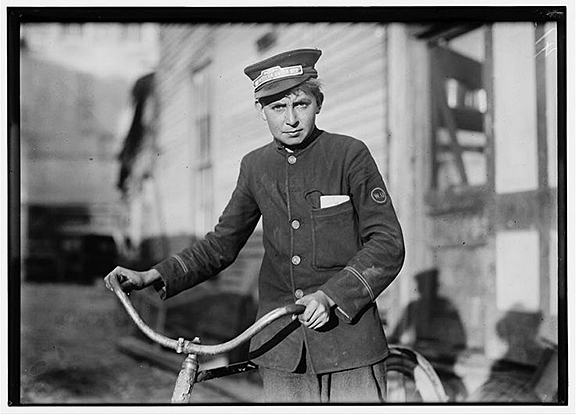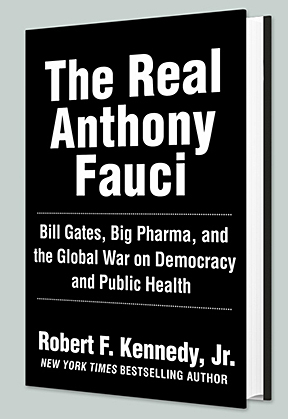Mapping the News Over Time
Itinerant messengers, speakers, and scribes have long carried stories and news from near and far throughout time. Since 1874, western New York’s Chautauqua Institution has been a place where preachers, teachers, speakers, and artists could share their ideas and work. On August 12, 24-year-old Hadi Matar violated Chautauqua’s spirit of shared ideas when Matar stabbed Salman Rushdie in front of people gathered to hear Mr. Rushdie speak. Part of what Salman Rushdie might have said would probably address his having lived, since 1989, with death threats from people offended by his writing. 
Fanatics sometimes shoot the messenger when they don’t like the message.
On August 18, “The New York Times” reported that Meta banned Robert F. Kennedy Jr.’s Children’s Health Defense from its platforms for spreading anti-vaccination information. Kennedy’s Children’s Health Defense sites had reported that the polio vaccine is causing an uptick in polio cases worldwide; a supposition supported by a European Centre for Disease Prevention and Control map and legend published July 5, 2022, at www.ecdc.europa.eu/en/publications-data/polio-interactive-map. Further, the US Center for Disease Control reports that Vaccine-Derived Poliovirus is on the rise among unvaccinated populations.
There are two different types of polio vaccine. Injectable polio vaccines, the type used in the United States, using inactivated polio virus. Oral polio vaccines, used by many other nations, include weakened live polio virus. The weakened live viruses in oral polio vaccines can find their way to others through personal contact and shared water. These weak viruses can mutate, and together with wild polio virus, endanger unvaccinated people. There is no cure for polio.
A photo of Mr. Kennedy appearing to be ranting angrily accompanies “The New York Times” article.
My intent here is not to write about polio; but to highlight how writers and public speakers have long provided us with information we might happen upon on our own. My own polio-related research for what I intended as a sort of defense of Robert F. Kennedy Jr.’s basis for his highly emotional advocacy for vaccine safety, turned up a 1999 “New York Times” article in which writer Denise Grady reported that doctors were recommending that the United States switch completely from oral polio vaccines to injectable vaccines because of the risk children vaccinated with oral vaccine posed to unvaccinated adults. This 1999 article states, “about eight such cases occur each year…one for every 2.4 million oral doses given.” That’s a low risk. A low risk is still a risk. The United State’s medical community had already begun phasing out oral polio vaccines in 1997.
It’s becoming increasingly known, if not yet common knowledge, that when medicine fights bacteria and viruses, bacteria and viruses mutate to fight back. Many municipalities, and private institutions monitor wastewater for viruses such as polio and, of course, COVID. As of August 19, when I’m writing this, poliovirus has been detected in NYC wastewater and there are cases of polio infection in New York State, including one involving paralysis.
 Many people, including Robert F. Kennedy Jr., question the safety of COVID vaccines. I’ve read parts of Robert F. Kennedy Jr.’s book, “The Real Anthony Fauci.” Kennedy reports much about private pharmaceutical influence over CDC research and testing, and how moneyed interests might have affected Dr. Fauci’s focus and messaging, first in AIDS research, and then with COVID. Kennedy’s book includes a lot of footnotes and a disclaimer that his own research is ongoing; Kennedy invites readers to challenge his assessments and provide updated information by contacting him directly.
Many people, including Robert F. Kennedy Jr., question the safety of COVID vaccines. I’ve read parts of Robert F. Kennedy Jr.’s book, “The Real Anthony Fauci.” Kennedy reports much about private pharmaceutical influence over CDC research and testing, and how moneyed interests might have affected Dr. Fauci’s focus and messaging, first in AIDS research, and then with COVID. Kennedy’s book includes a lot of footnotes and a disclaimer that his own research is ongoing; Kennedy invites readers to challenge his assessments and provide updated information by contacting him directly.
Writer Ross Douthat, in his August 13 “NY Times” Op-ed column criticizes the CDC for worsening COVID-related panic with its changing guidelines and messages. Dr. Fauci said the CDC was following the science; following the science involves observing, recording, and analyzing cause and effect as new and/or sometimes surprising correlations and conditions manifest. During crises, people want to trust experts; experts want to be trusted; experts know what they know from education and experience. Like everyone, experts might not automatically understand the significance of what they are seeing when they see something new.
When bad things start to happen in otherwise stable settings, people who trust in the good aren’t quick to see the bad. It’s been reported that on August 12 at Chautauqua, there were audience members who saw Hadi Matar attack Salman Rushdie and thought that the attack might have been a staged performance. Salman Rushdie had appeared as himself in a fatwa related plotline in HBOs “Curb Your Enthusiasm.” While Salman Rushdie may be the first writer to be stabbed on stage at an American humanities retreat; Salman Rushdie is certainly not the first messenger to be attacked for his message.










